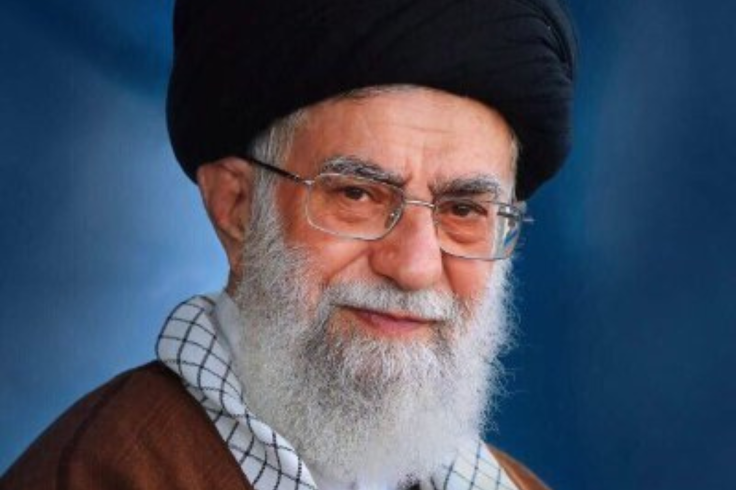Who Is Iranian Supreme Leader Ali Khamenei? Will His Defiant Words Spark New Conflict with the US?
Khamenei's 26 June 2025 video address, his first since US strikes on Iran's nuclear sites, dismissed Trump's demand for 'unconditional surrender''.

Ayatollah Ali Khamenei, Iran's Supreme Leader since 1989, is a towering figure in the Islamic Republic, wielding ultimate authority over its administration, military, and judiciary.
At 86, his 36-year tenure has shaped Iran into a regional power, marked by unwavering opposition to the US and Israel, economic struggles under sanctions, and a controversial nuclear programme.
His recent defiant remarks, rejecting US President Donald Trump's call for surrender and warning of 'irreparable consequences' for US military action, have reignited tensions following a fragile ceasefire with Israel on 26 June 2025.
Navigate Iran's Complex Leadership
Born in 1939 in Mashhad, Khamenei rose from a cleric to a revolutionary figure, opposing the then Shah rule during the 1978–1979 Iranian Revolution.
After serving as president from 1981 to 1989, he succeeded Ayatollah Ruhollah Khomeini as the Supreme Leader, consolidating power despite lacking the religious credentials initially required.
His leadership blends ideological rigidity with pragmatism, overseeing Iran's 'Axis of Resistance', supporting groups like Hezbollah and Hamas, while navigating economic crises caused by US sanctions, which have cost Iran an estimated £80 billion ($109 billion) annually.
Reuters notes that Khamenei's control over the £48 billion ($65 billion) Setad financial empire and the Revolutionary Guards has solidified his grip, even as domestic protests, like those in 2022 over Mahsa Amini's death, challenge his regime.
Assess the Risk of Escalation
Khamenei's 26 June 2025 video address, his first since US strikes on Iran's nuclear sites, dismissed Trump's demand for 'unconditional surrender' and claimed Iran's missile strike on a US base in Qatar was a 'severe slap' to America.
AP News reports he warned of further retaliation if the US strikes again, raising fears of renewed conflict.
The US bombing, which Trump claimed 'obliterated' Iran's nuclear programme, has left Iran's uranium enrichment capacity uncertain, with conflicting reports on the damage.
The New York Times suggests Khamenei's silence during the 12-day Israel-Iran war sparked speculation about his health, but his reappearance signals defiance.
Social media, including X posts, reflects Iranian resolve, with users echoing Khamenei's refusal to bow to US pressure.
Yet, his bunker-bound caution and reported succession plans, naming three clerics as potential replacements, hint at vulnerability amid assassination threats from Israel and Trump's cryptic warnings.
Prepare for Regional Ripple Effects
Khamenei's rhetoric risks escalating tensions in a volatile Middle East. Iran's Foreign Ministry warned that US intervention could spark 'all-out war,' while The Guardian notes Iran's weakened military, decimated by Israeli strikes, limits its options.
The ceasefire, brokered by Qatar, holds tenuously, with Iran's parliament considering exiting the Nuclear Non-Proliferation Treaty, a move that could accelerate its nuclear ambitions.
This follows US strikes on 22 June 2025, which cost Iran an estimated £8 billion ($10.9 billion) in infrastructure damage.
If Khamenei pushes for nuclear weaponisation, as some hardliners advocate, it could provoke a US or Israeli response, destabilising the region further.
Meanwhile, domestic unrest grows, with Iranians blaming Khamenei for economic woes and war losses, potentially weakening his regime's stability.
Defiance or Disaster for Iran?
Khamenei's unyielding stance against the US, rooted in decades of enmity, reflects both his ideological commitment and a bid to rally domestic support.
However, his provocative words, coupled with Iran's battered military and economy, could miscalculate the US response, risking a broader conflict.
With Trump hinting at regime change and Israel targeting Iran's leadership, Khamenei's defiance may either solidify his legacy or ignite a crisis Iran cannot afford.
© Copyright IBTimes 2025. All rights reserved.





















